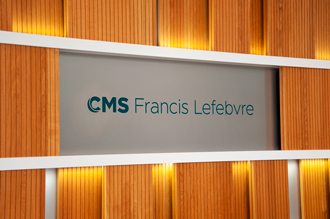More than three months after the declaration of the State of Health Emergency, France gradually exits from the crisis. The law organising the exit from the State of Health Emergency, adopted definitively on 2 July 2020 and published in the Official Journal on 10 July 2020, provides for the gradual exit from the exceptional regime but provides for the maintenance of a provisional ad hoc regime to address uncertainties related to the evolution of the epidemic.
Transitional measures to exit the State of Health Emergency
From 11 July 2020 to 30 October 2020 inclusive, and for the sole purpose of combating the spread of the Covid-19 epidemic, the Prime Minister may take various measures by decree. In this respect, he may:
- regulate, or even prohibit, in certain parts of the territory in which the virus is actively circulating, the movement of persons and vehicles and access to the public means of transport and the conditions of their use;
- restrict or even prohibit the movement of persons and the circulation of air and maritime means of transport;
- regulate the opening of establishments to the public (restaurants, cinemas, sports centres, etc.) as well as meeting places, or even order their provisional closure if they host activities that do not ensure the implementation of measures to prevent the risk of spread or if they are located in parts of the territory in which an active circulation of the virus is observed;
- regulate people's gatherings, meetings and activities on public roads and in public places;
- impose a virological screening test on persons wishing to travel to or from the metropolitan territory or overseas communities appearing in the list of infection circulation zones set by order of the Minister of Health.
Parliamentarians have thus defined the prohibitions that the Government may decide to impose. In this regard, in the event of a resurgence of the epidemic in certain territories, travel and gatherings may be limited but a general confinement of the population may not be ordered. To do so, the Government would be forced to declare a new State of Health Emergency.
In the event of reactivation of the virus in certain parts of the territory, the prefects of departments or regions may be authorised by the Prime Minister to:
- take general or individual measures to implement the above measures when they are adopted by the Prime Minister;
- decide themselves, on the opinion of the Director General of the Regional Health Agency, on the measures set out above when they are to apply only in the department;
- order, by decree issued after formal notice has remained without effect, the closure of establishments open to the public which do not comply with the conditions of access and presence defined.
The prescribed measures must be strictly proportionate to the health risks incurred and appropriate to the circumstances of time and place. They shall be immediately terminated when they are no longer necessary. The measures taken are immediately brought to the attention of the National Assembly and the Senate, which may require any additional information in the context of their control and evaluation. In addition, these measures, when implemented, may be subject to administrative interim proceedings.
Despite the end of the State of Health Emergency, the Scientific Council has been maintained and continues to meet. It periodically provides opinions on the prescribed measures that are immediately made public.
Violation of the above measures shall be punishable by the fine provided for fourth category offences (€750) and, in the event of a repeat offence within 15 days, the fine provided for fifth-category offences. If the violations provided for are reported more than three times within 30 days, the offences are punishable by six months' imprisonment and a fine of €3,750, as well as the additional penalty of community service and the additional penalty of a driving licence suspension for a period of not more than three years if the infringement has been committed using a vehicle.
Maintaining the State of Health Emergency in French Guyana and Mayotte
The bill governing the exit from the State of Health Emergency extends, up to and including 30 October 2020 and only in the territories of French Guyana and Mayotte, the State of Health Emergency as declared by Article 4 of Law no. 2020-290 of 23 March 2020 as an emergency to deal with the Covid-19 epidemic.
Due to the active circulation of the virus in both overseas communities, virological screen testing is required until that date for persons travelling by to or from these territories.
Possible reactivation of the State of Health Emergency in other territories
If the progress of the health situation jeopardises the health of the population and until 1 April 2020, the State of Health Emergency may be declared by the Government, by decree in the Council of Ministers taken on the report of the Minister for Health. This decree determines the territorial district(s) within which it is intended to apply. On this point, the law only recalls the existing law.
In addition, the scientific data that led to the decision to declare the State of Health Emergency must be made public.
Lengthening the retention period of data collected to combat the epidemic
The law governing the exit from the State of Health Emergency allows for an extension of the retention period of certain personal data in order to assist in epidemiological surveillance at national and local level, as well as in research on the virus and the means to combat its spread.
Initially, Article 11 of Law no. 2020-546 of 11 May 2020 laying down the State of Health Emergency had authorised the retention of personal data for a period of three months following their collection.
The bill provides for the possibility of keeping these data for a maximum period of six months from the end of the State of Health Emergency, i.e. until 10 January 2021 inclusive.
This extension must be the subject of a decree in the Council of State adopted following the opinion of the Covid-19 Control and Liaison Committee and the French Data Protection Authority (CNIL).
For data collected prior to its entry into force, this decree must specify in particular how the data subjects are informed immediately of this extension.
This text was the subject of an appeal before the Constitutional Council which rejected it on 9 July 2020, without any censorship or reservation.
Report: impacts of Covid-19 (Coronavirus)
Our law firm offers you its legal assistance to address all the impacts of Covid-19 (Coronavirus) on your business. Read our dedicated report below.
For more information on our law firm:
Our law firm is a leading international business law firm. Its deep roots, unique positioning and highly recognised expertise enables it to deliver innovative, high value-added solutions in all areas of the law.












Social Media cookies collect information about you sharing information from our website via social media tools, or analytics to understand your browsing between social media tools or our Social Media campaigns and our own websites. We do this to optimise the mix of channels to provide you with our content. Details concerning the tools in use are in our privacy policy.